Market
Judy Chicago, Inc.: How the Feminist Art Icon Is Building a Merchandise Empire Through Signature Soaps, Skateboards, and Wine
The artist has installed a gift shop at Jeffrey Deitch for her new show.
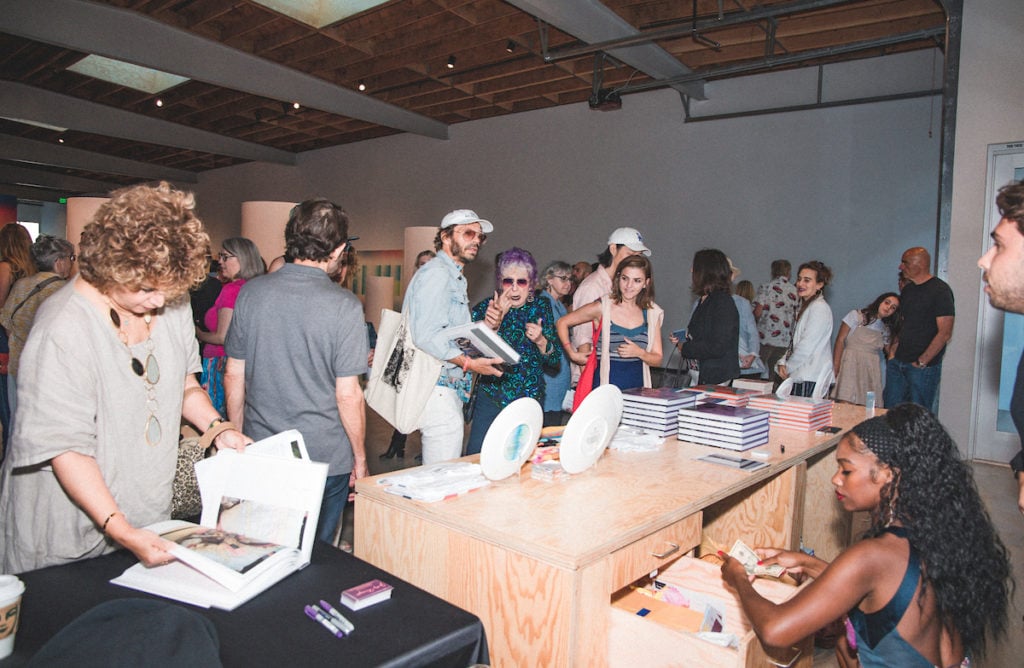
The artist has installed a gift shop at Jeffrey Deitch for her new show.

Rachel Corbett

After seeing the current exhibition of early work by Judy Chicago at Jeffrey Deitch gallery in Los Angeles (through November 2), visitors may be surprised to discover that the exit is through a gift shop.
There, products from the feminist artist’s growing merchandise empire—pink skate decks, postcards, and goddess soaps—are available for purchase.
“Even though most of the audience at museum shops is female, most shops don’t offer much in the way of feminist materials,” Chicago told artnet News when asked about her expansion into the retail market. “This is very aggravating!”
Chicago made strides in the business of branded products two years ago, when she created a line of four limited-edition dinner plates timed to her 2017 Brooklyn Museum show “Roots of The Dinner Party,” ranging from $135 to $155.
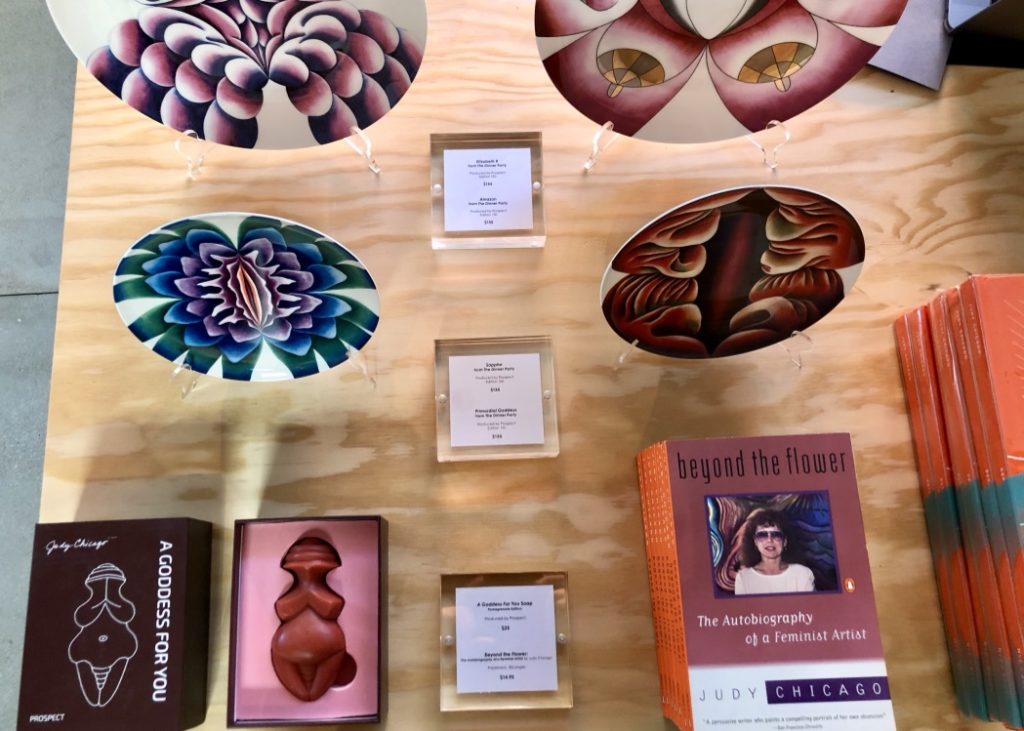
Prospect x Judy Chicago capsule shop at Jeffrey Deitch.
“Over the years, I’ve watched a lot of people get commissions to make dinner plates and I always thought, ‘like, excuse me?’” Chicago told artnet News at the time.
Chicago signed on to work with Laura Currie and her company, Prospect, to develop the decorative plates that they hoped would “sit in people’s houses and generate conversation,” Currie said.
“I had already done some products but they never got widely distributed,” Chicago said. “As I have always been interested in broadening the audience for art without compromising aesthetic quality, I was very interested in working with Laura. We work together closely to make sure the products that we produce also have educational value. For instance, The Dinner Party plates have information on the back about the women represented.”
The plates were such a “radical success,” Currie said, that the pair decided to experiment with new products.
Today, Chicago’s wares include coasters, towels, silk scarves, a Max Mara t-shirt, throw pillows, and, most recently, wine produced by the Jaramillo Winery in New Mexico, where Chicago lives. The bottles’ labels feature the artist’s signature and a looping pink-and-purple design. (The white wine is, according to one review, “soft, clean, and relatively neutral.”)
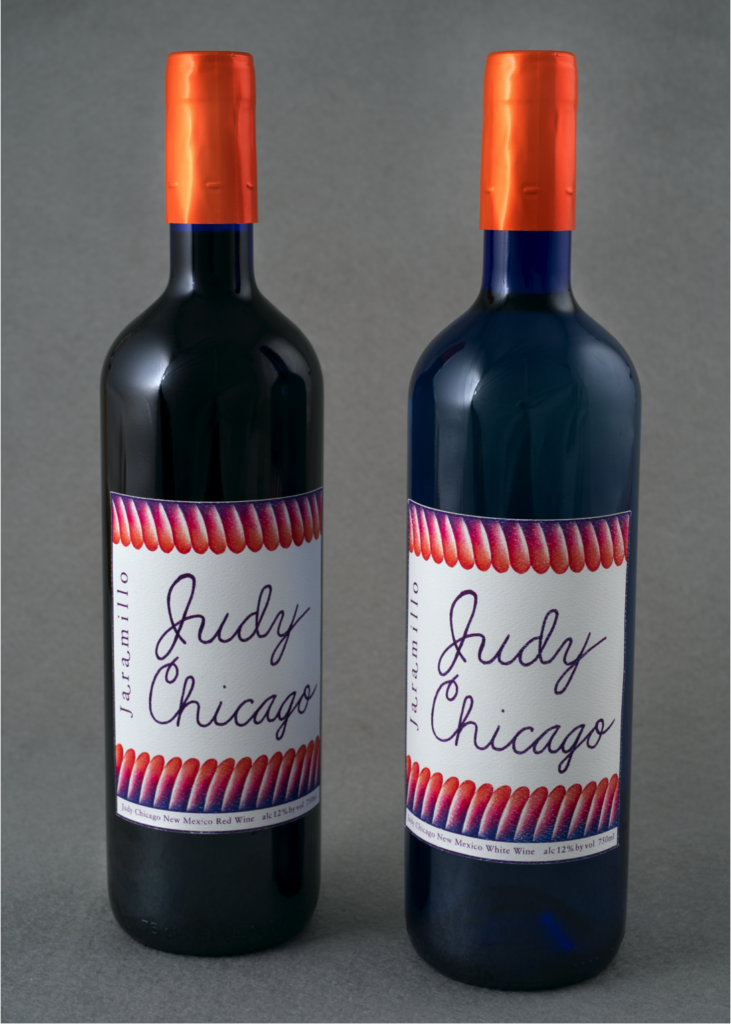
Judy Chicago wine produced by Jaramillo Vineyard.
Sometimes the products are rolled out to coincide with museum exhibitions and sold through institutional gift shops, such as the Bigamy Hood Towel ($125), produced on the occasion of Chicago’s retrospective at the Institute for Contemporary Art in Miami in 2018–19, and or the Judy Chicago cotton t-shirt ($62) for the Museum of Contemporary Art in Chicago, which honored the artist at its 2019 “Visionary” luncheon.
Other products are sold year-round on Prospect’s website, which also offers works produced with artists such as Nir Hod, Enoc Perez, Rachel Libeskind, and Baron Von Fancy.
When asked if she sees merchandise as a potential alternative revenue stream to the traditional art market, which has historically undervalued women artists, she said, “No, that was not my motivation, which has never been about money.”
In some cases, the payoff for merchandise seems to be relatively low. For example, the skateboard company that produced a line of Chicago-designed decks—$350 for a pink ripple-patterned version, $750 for a three-deck butterfly—gives artists 5 percent of the proceeds (Chicago is donating her cut to her non-profit organization Through the Flower) and donates another 5 percent to a charity that teaches skateboarding to refugees. Chicago’s take home is higher for the wine, for which she receives 30 percent of the proceeds from bottles that retail for about $50 each, or $125 for signed bottles. (She says she donates this money to Through the Flower as well.)
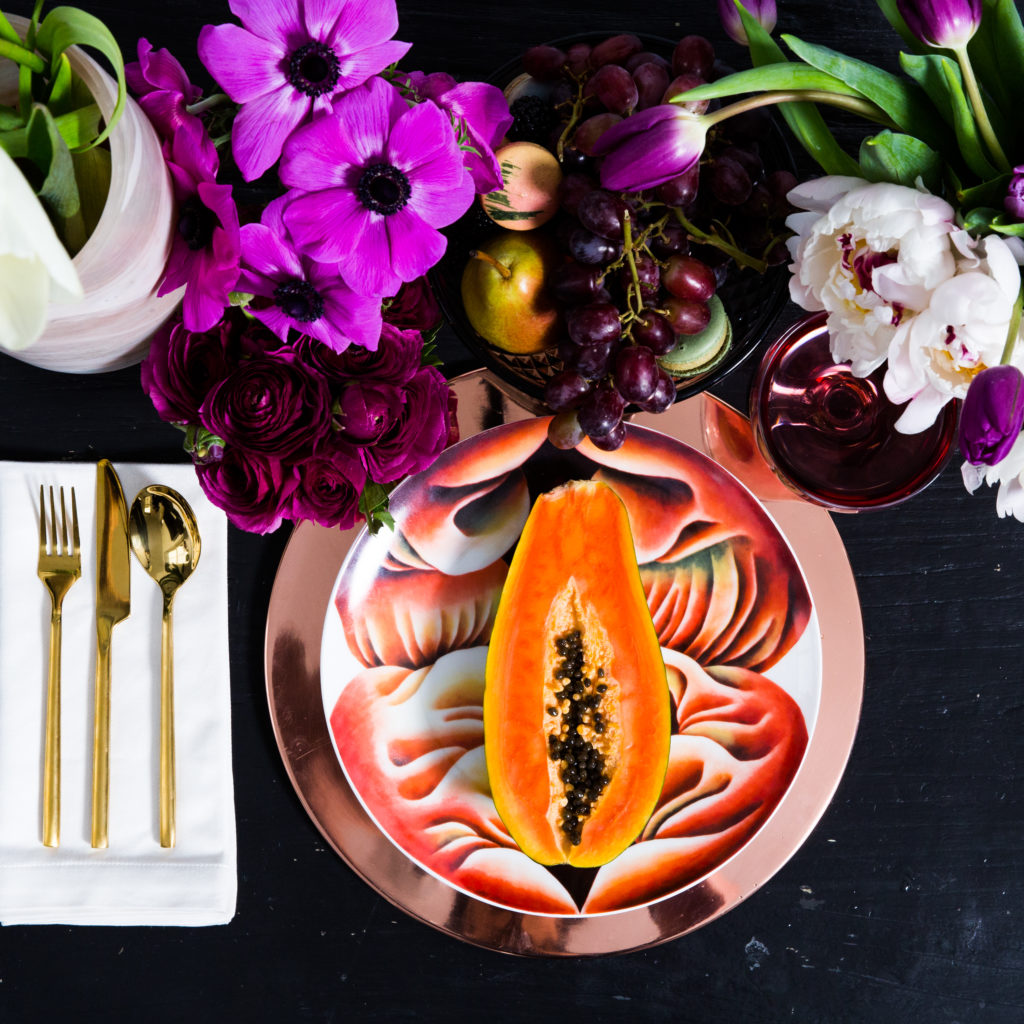
Prospect x Judy Chicago dinner plate.
Currie says that Prospect’s contracts with artists are confidential but that they receive “a significant percentage of every single item that is sold.”
“The main benefit is a complementary resource—a place for artists to create and share beyond their studio and galleries,” Currie said. “If this offers an alternative revenue stream for artists, then that’s great, but we’re not here to be disruptive to an artists’ practice. We look at it as a chance for artists to create something fun and different that expands their work.”
See more of Chicago’s merchandise below.
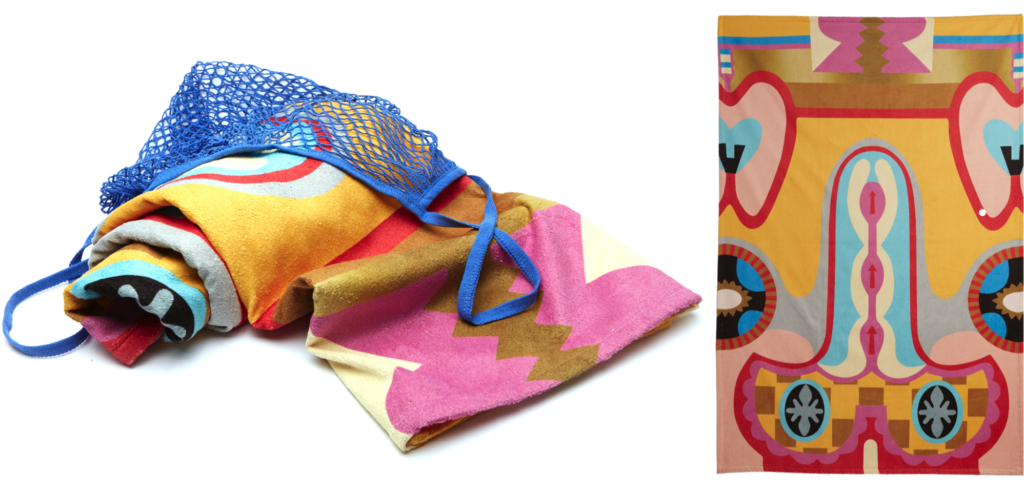
Prospect x Judy Chicago Bigamy Hood Towel.
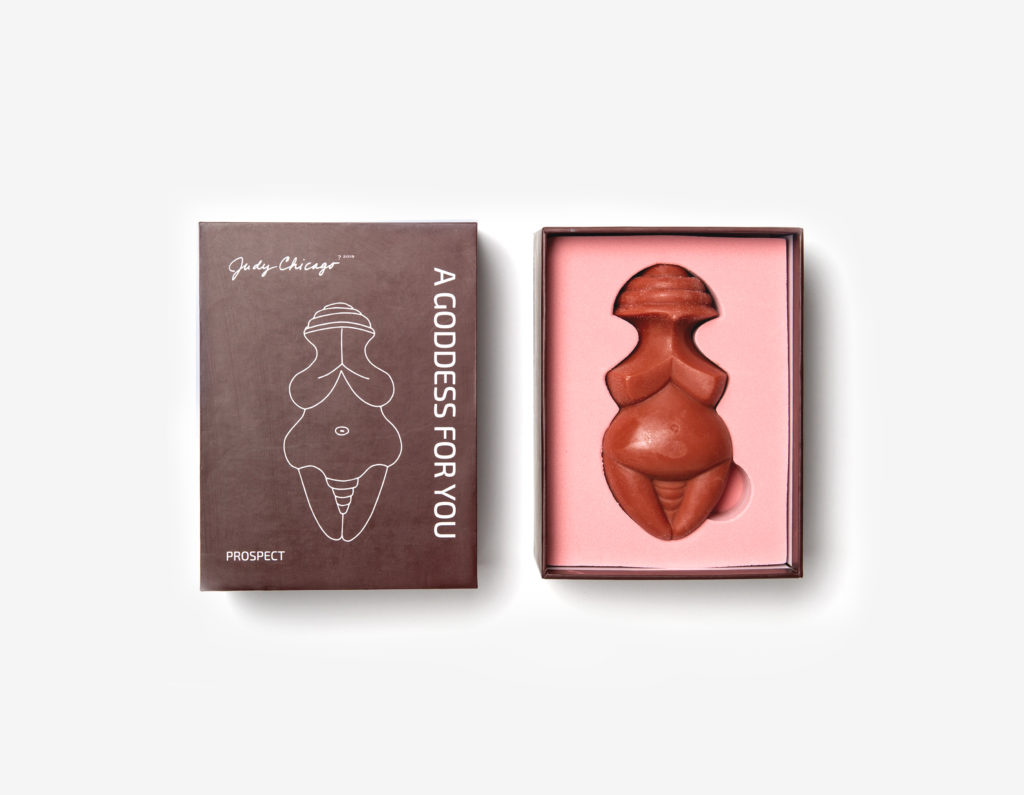
Judy Chicago’s A Goddess for You soap, pomegranate edition. Courtesy of Prospect.
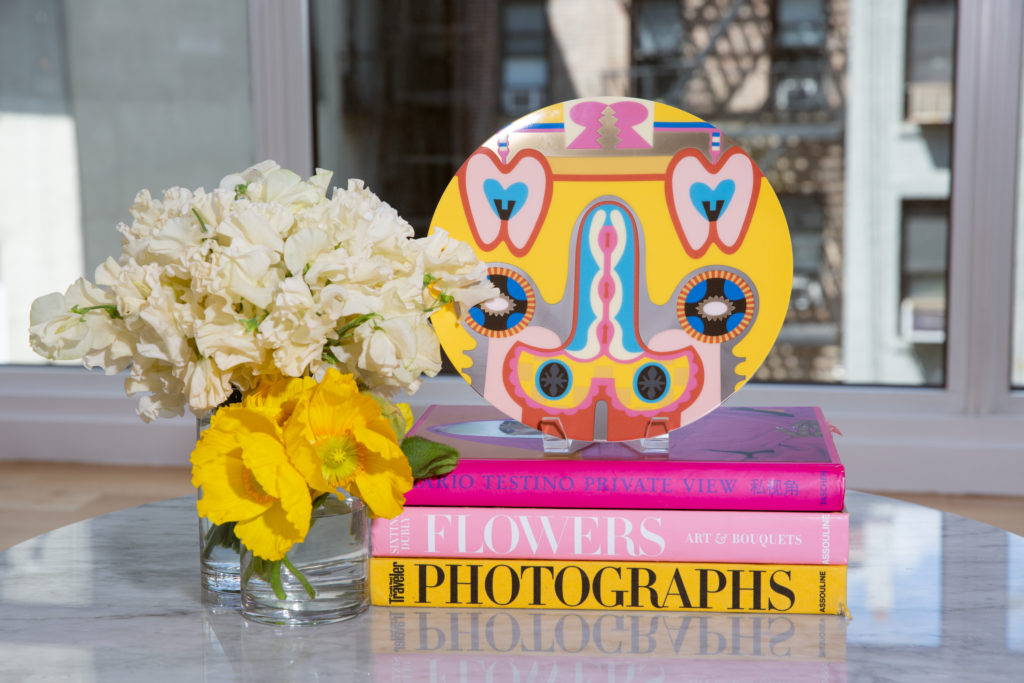
Products at the Judy Chicago capsule show at Jeffrey Deitch in Los Angeles. © 2019 Ozeylah Smyth.
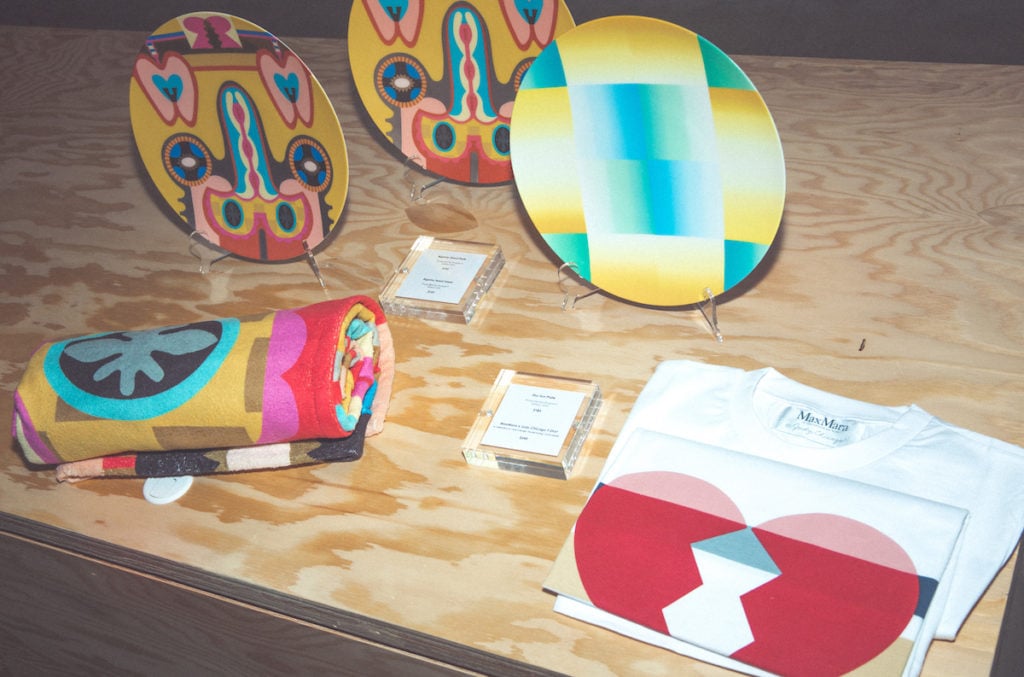
Prospect x Judy Chicago capsule shop at Jeffrey Deitch in Los Angeles.
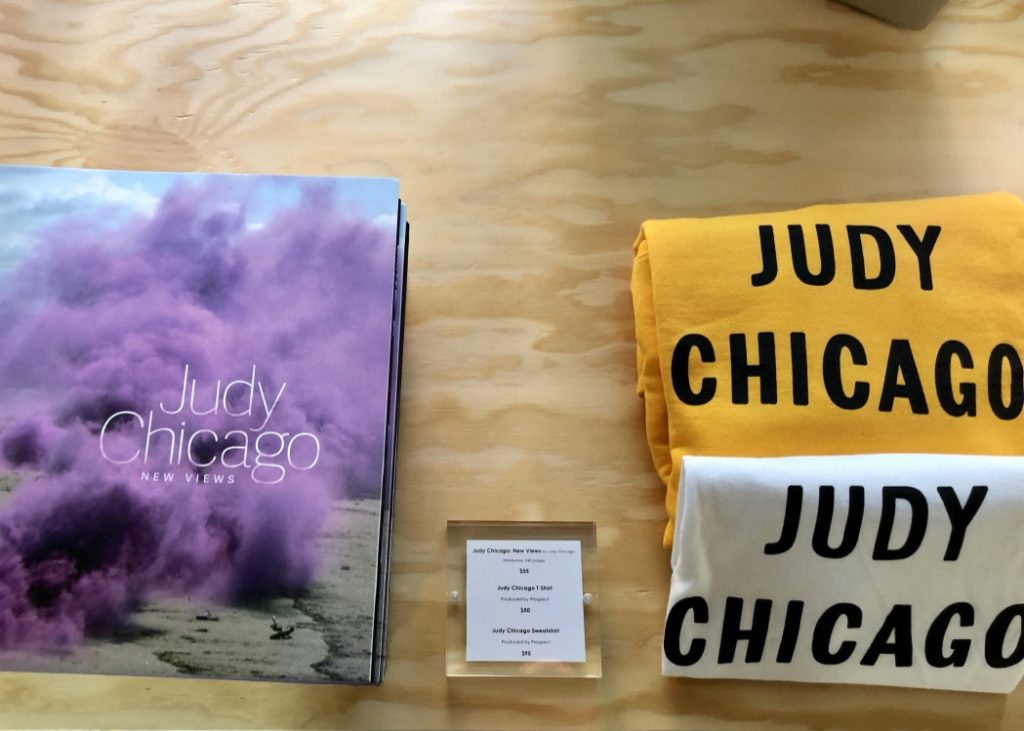
Prospect x Judy Chicago capsule shop at Jeffrey Deitch in Los Angeles.